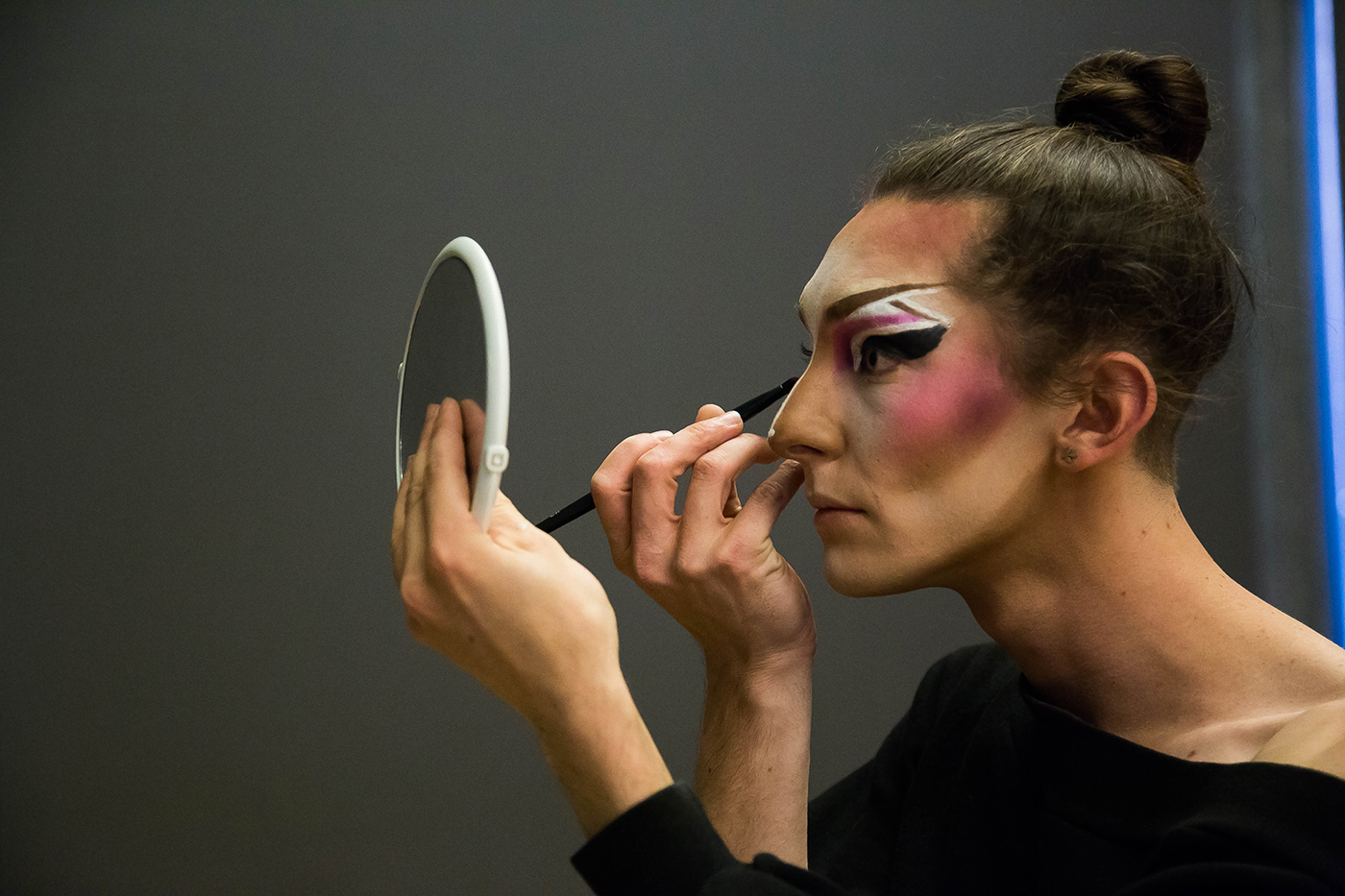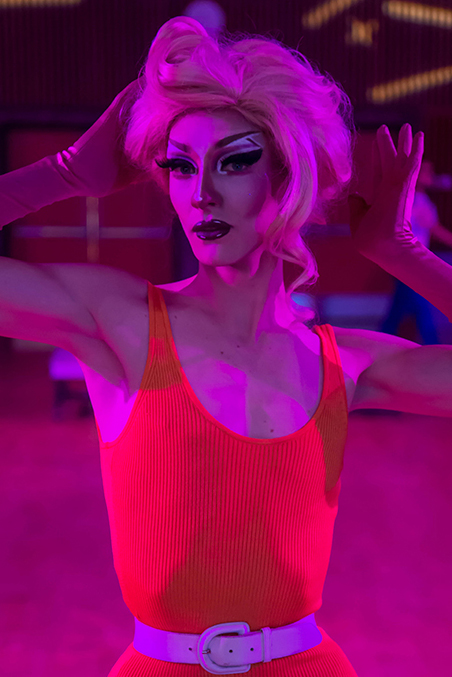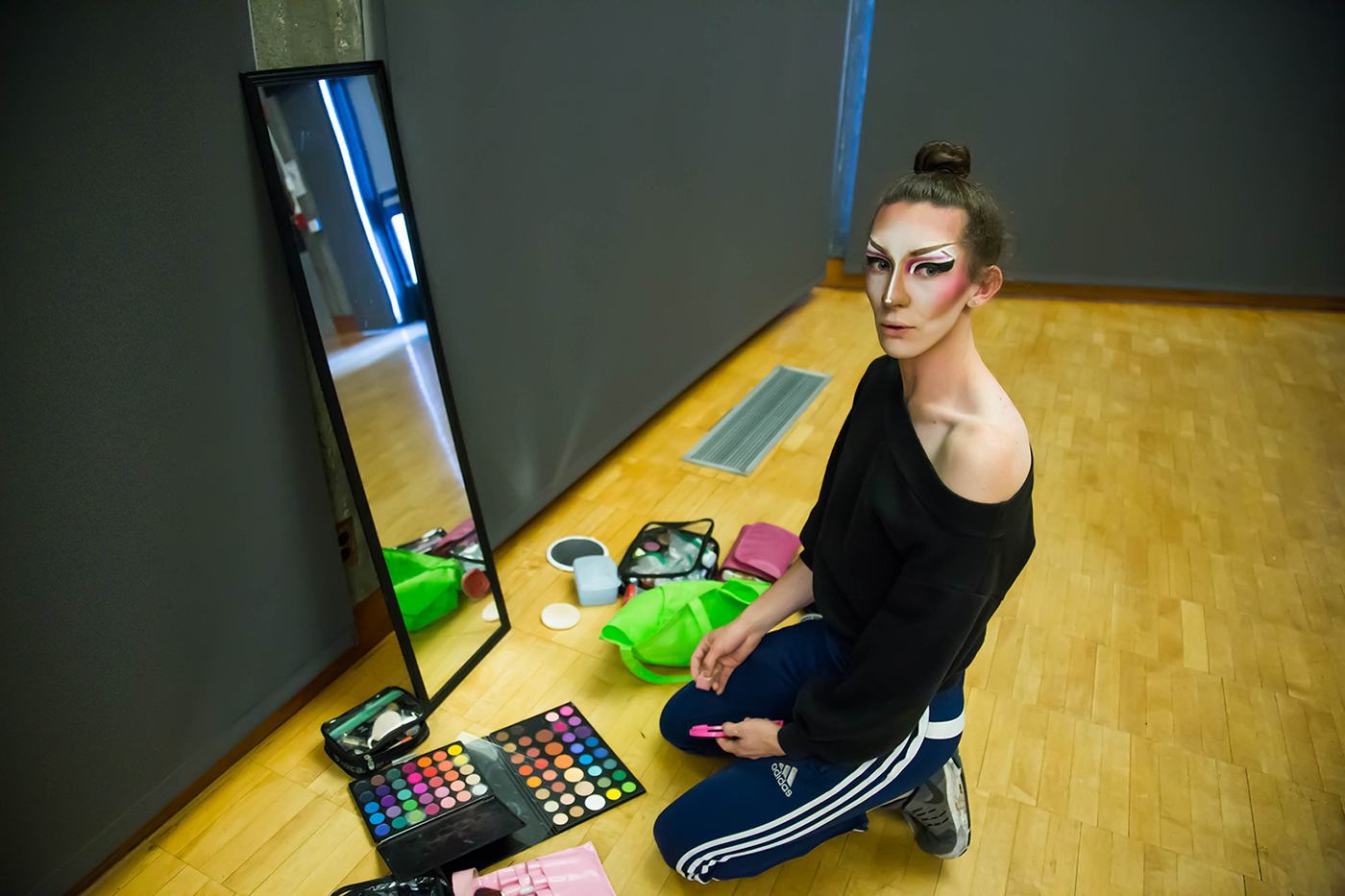Donning a blond wig, a form-fitting orange dress and six-inch heels, Jordan Collins prepared to step into the spotlight one last time.
At the tail end of their five-hour transformation process, the microbiology senior spritzed their blond curls with hairspray and checked themself in a mirror backstage of Chumash Auditorium. Soon, Collins would no longer be Collins — but Regina Flores, their drag queen alter ego.
“Putting on drag, you feel like you have a mask on, or a super suit on, and you can do anything,” Collins said. “You just feel invincible.”
In 2015, Collins co-founded the Cal Poly Drag Club alongside now-alumnus Rotem Drori. As a freshman who identified as genderqueer, Collins wanted to create a new platform on campus for students to freely express their gender identities.
“I really needed some sort of outlet to express my more feminine side,” Collins said. “I feel like I couldn’t really do that just walking around through society.”

Over four years, Collins has carefully crafted the persona of Regina Flores — “Regina” meaning “queen” in Latin, and “Flores” meaning “flowers” in Spanish. Collins said they crowned themself Queen of the Flowers due to their appreciation for botany and nature.
Collins highlights Regina’s femininity not only with dramatic eyeshadow and fake locks, but also with body pads to accentuate their hips and create a curvy figure. Each article of clothing and each stroke of makeup, Collins said, is an intentional artistic choice.
“I think Regina is not a different persona than I am,” Collins said. “I think it’s just a heightened persona of what I am, and a little less inhibited by social pressures.”

Collins’ desire to express a feminine side was nothing new. Growing up, they participated in girl-dominated activities, such as playing with Barbie dolls. Collins realized they identified as gay in high school but suppressed any hint of femininity to blend in with their straight male counterparts.
“I’m very adaptable in social situations, and I’m good at code-switching, so I was really good at lying for a lot of years about being gay,” Collins said. “That was just not fun to harbor.”
Collins later came out as gay in high school but said they still struggled to differentiate between sexual orientation and gender orientation going into college. As a freshman at Cal Poly, Collins said they often played dress up, trying on their friends’ skirts and bras.
Until performing in drag for the first time, Collins said they thought they were transgender.
“After experiencing drag I realized, ‘Wait, no, my body is fine and I’m happy with my body,’” Collins said. “It’s really just about how I want to express myself.”
Now, Collins performs not only with the Cal Poly Drag Club but also with SLOQueerdos, a local company that also hosts drag shows.
The last Cal Poly Drag Club show of the year, themed “Intergalactic Gays,” took place April 17 in Chumash Auditorium. Collins co-hosted the show alongside biological sciences junior Bethany Porta, who uses the drag name Kingdom. The two introduced each performance, from lip-syncing to dancing, and also hosted interactive games involving crowd members.
Attendees competed in queer history trivia for prizes such as Boo Boo Records gift cards and movie tickets and competed in a dance-off to the tune of Abba’s “Dancing Queen.”
“Me being able to do that and perform on stage in front of hundreds of people, with most of them other queer individuals – my confidence really transfers,” Collins said. “I think my confidence wears off on people and allows others to be themselves in a safe space.”
At the end of the show, Collins said they were grateful for the Pride Center and the Drag Club for offering a sense of community for so many students.
“It’s been a long, hard journey and lot of self-introspection,” Collins said to the audience. “But it’s been such an amazing experience to watch this community grow and flourish into what it is today.”
Collins said they hope to return to perform at Cal Poly after graduating.
“I made Cal Poly history,” Collins said. “I didn’t create the drag community, but I definitely helped pave the way for it to expand and for more people to come out of the woodwork. I think that’s very rewarding.”

